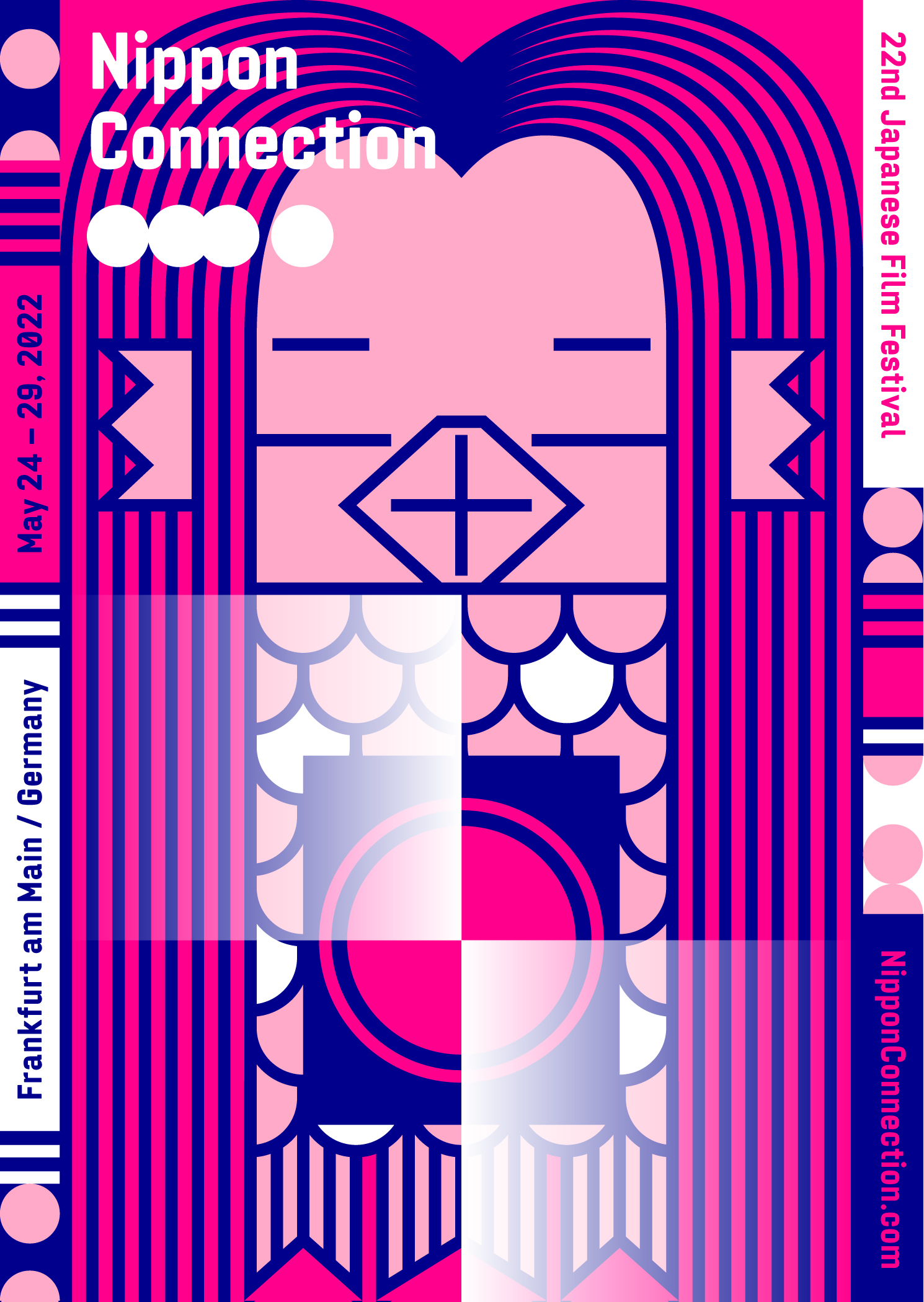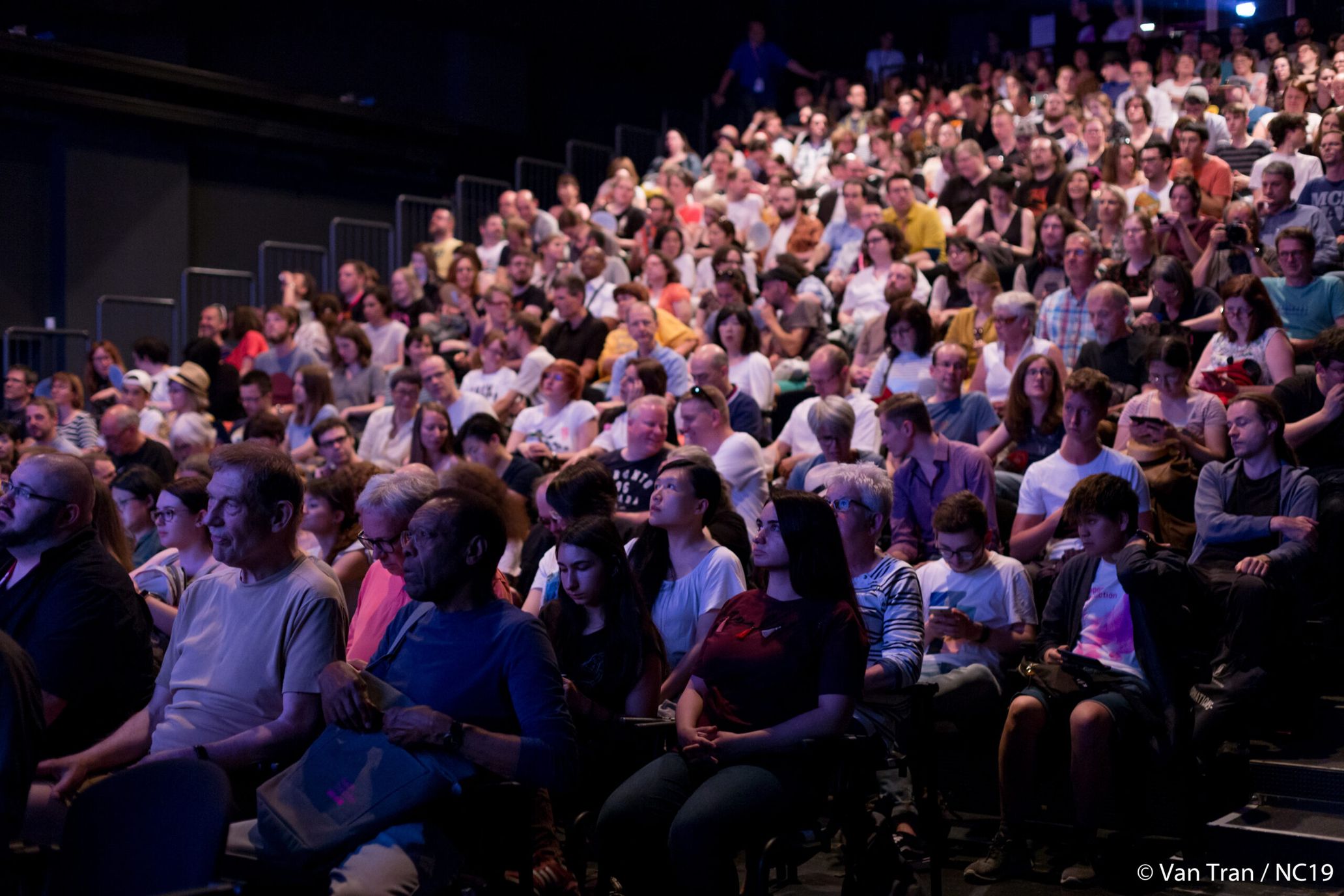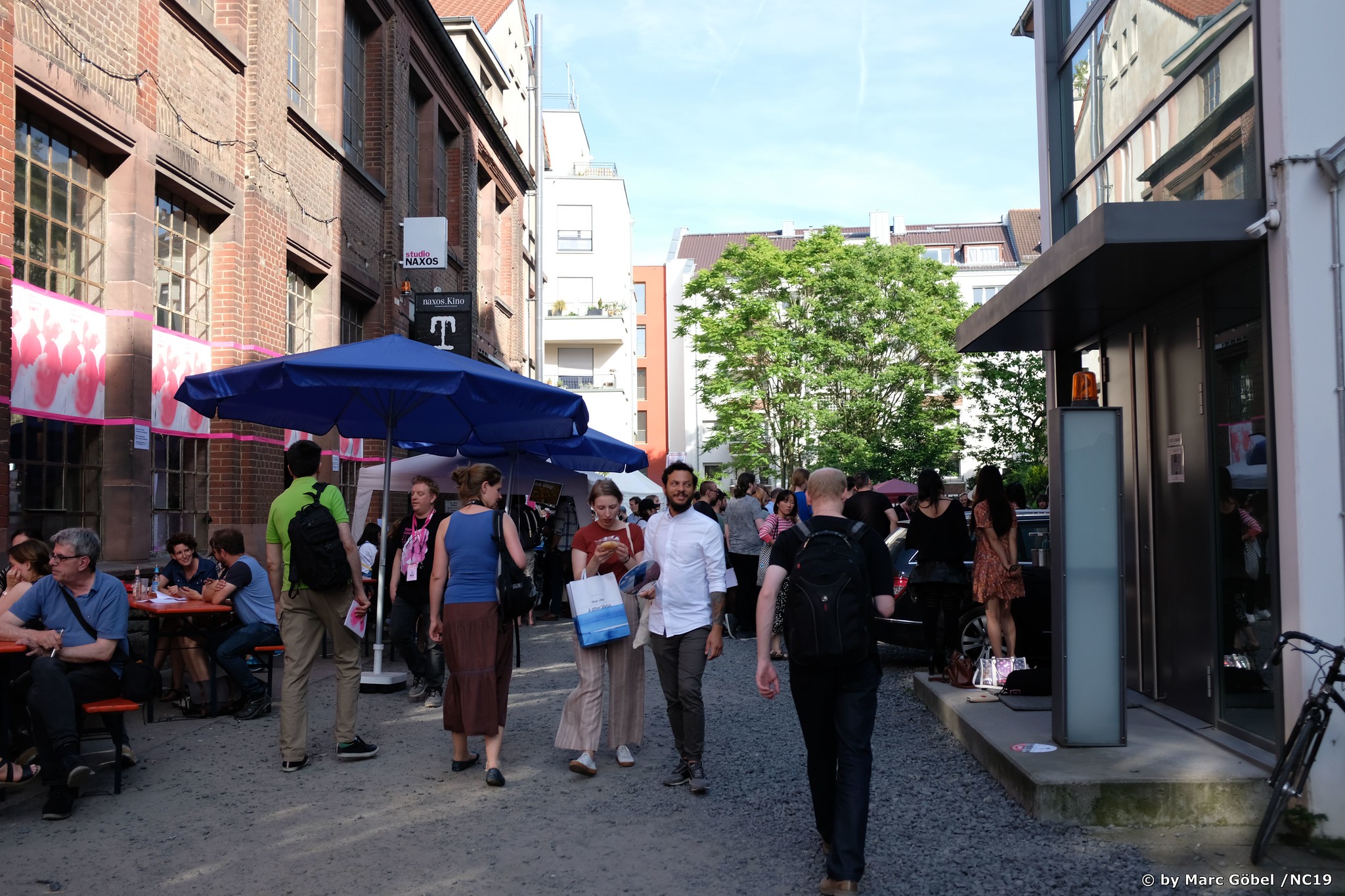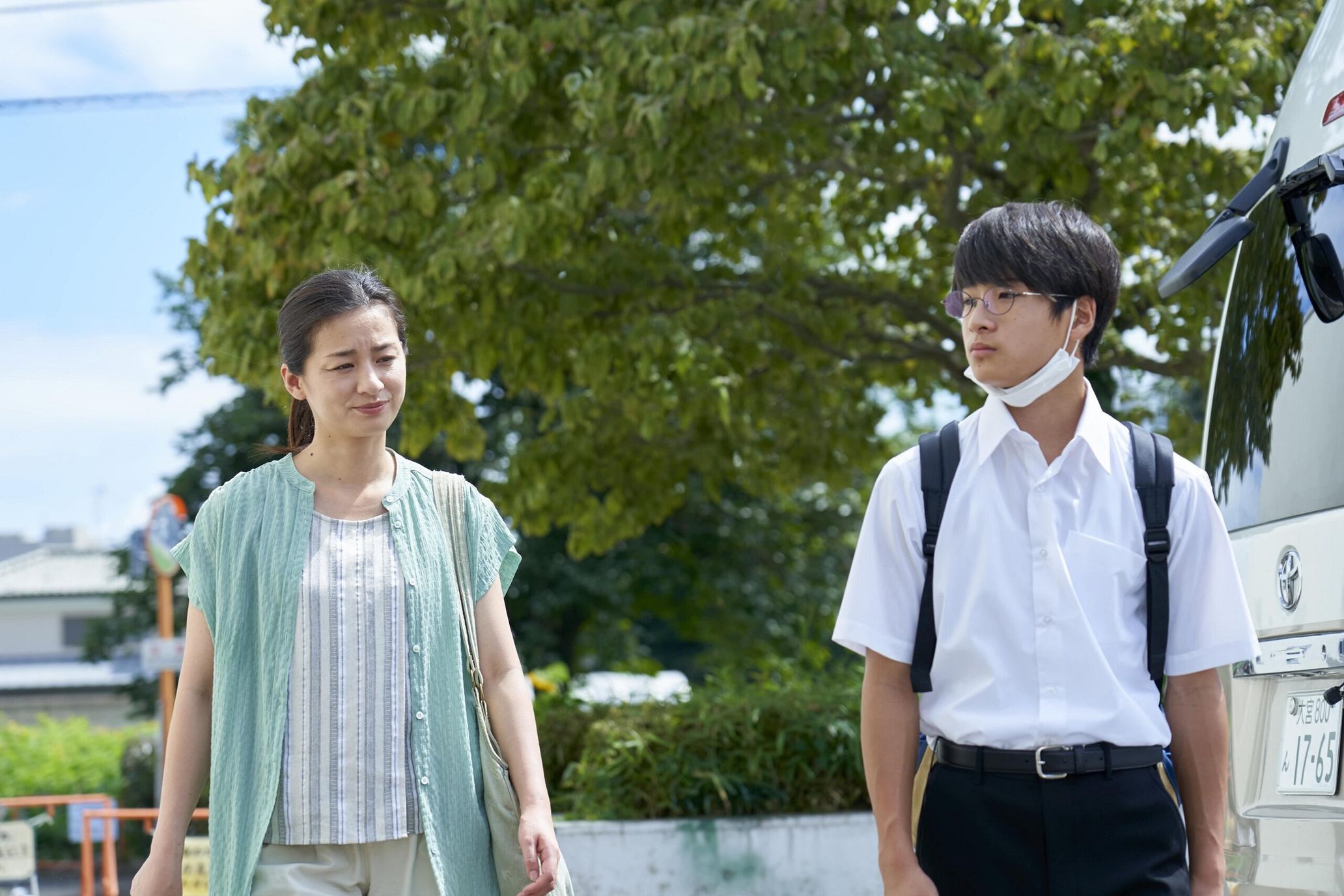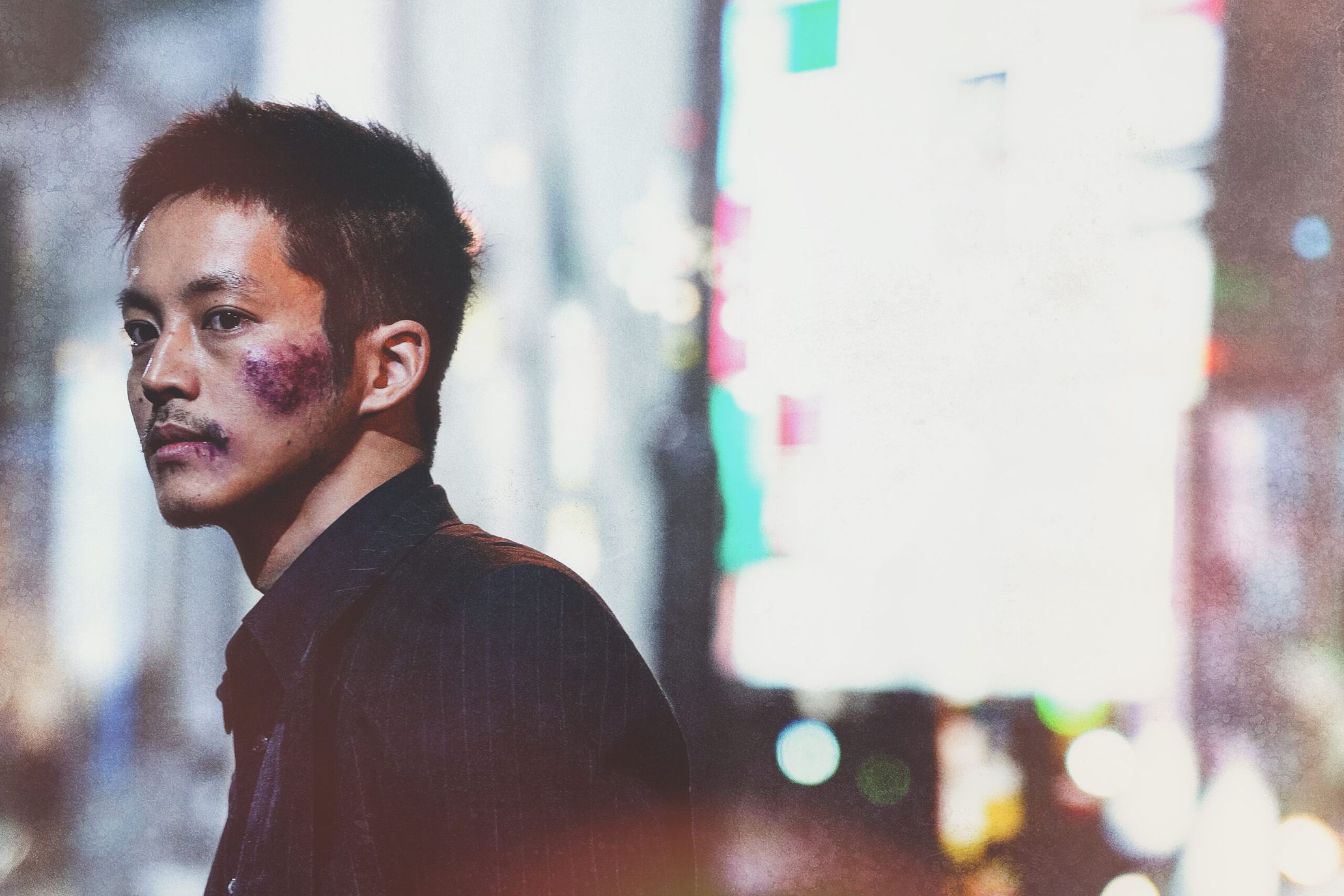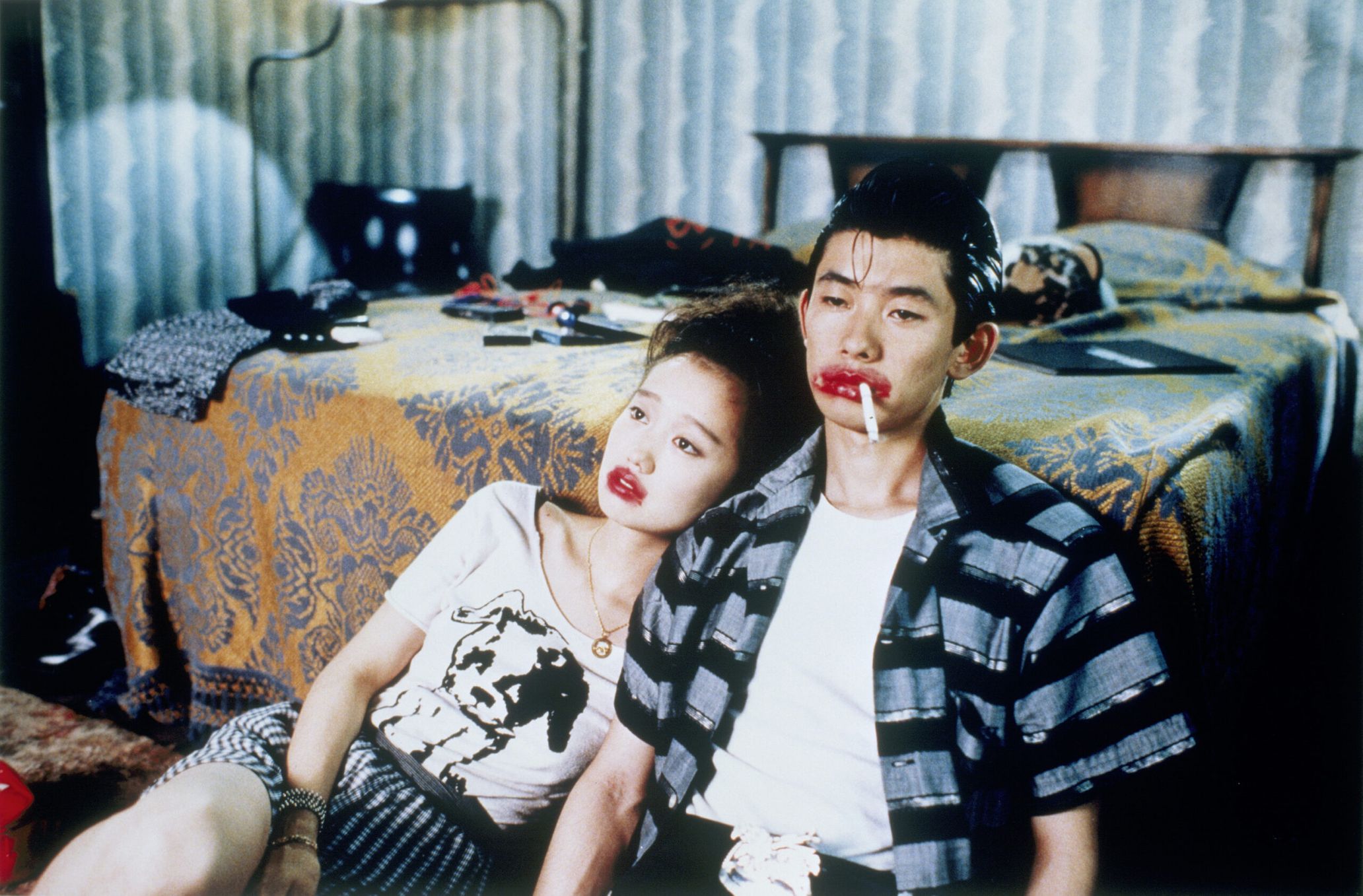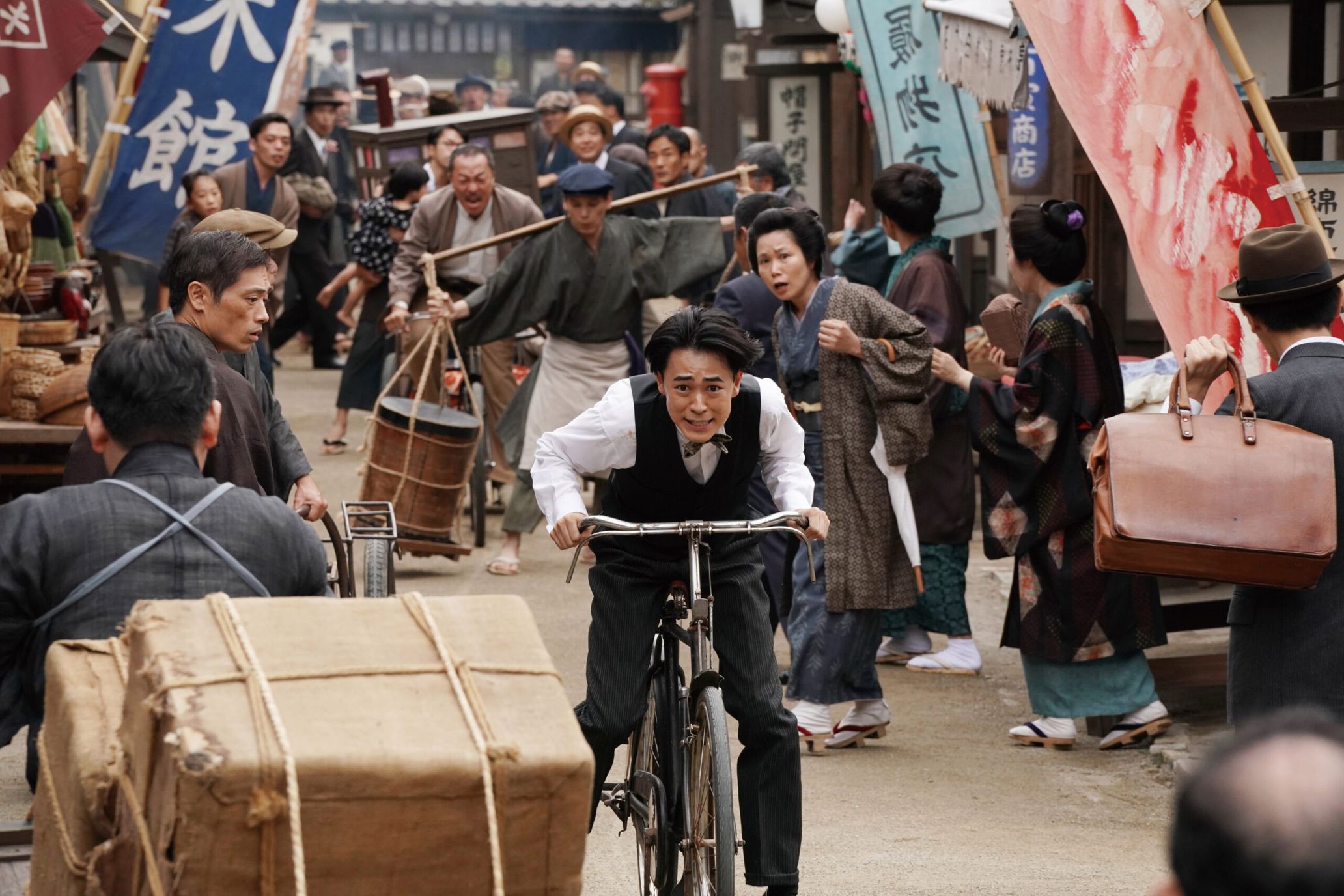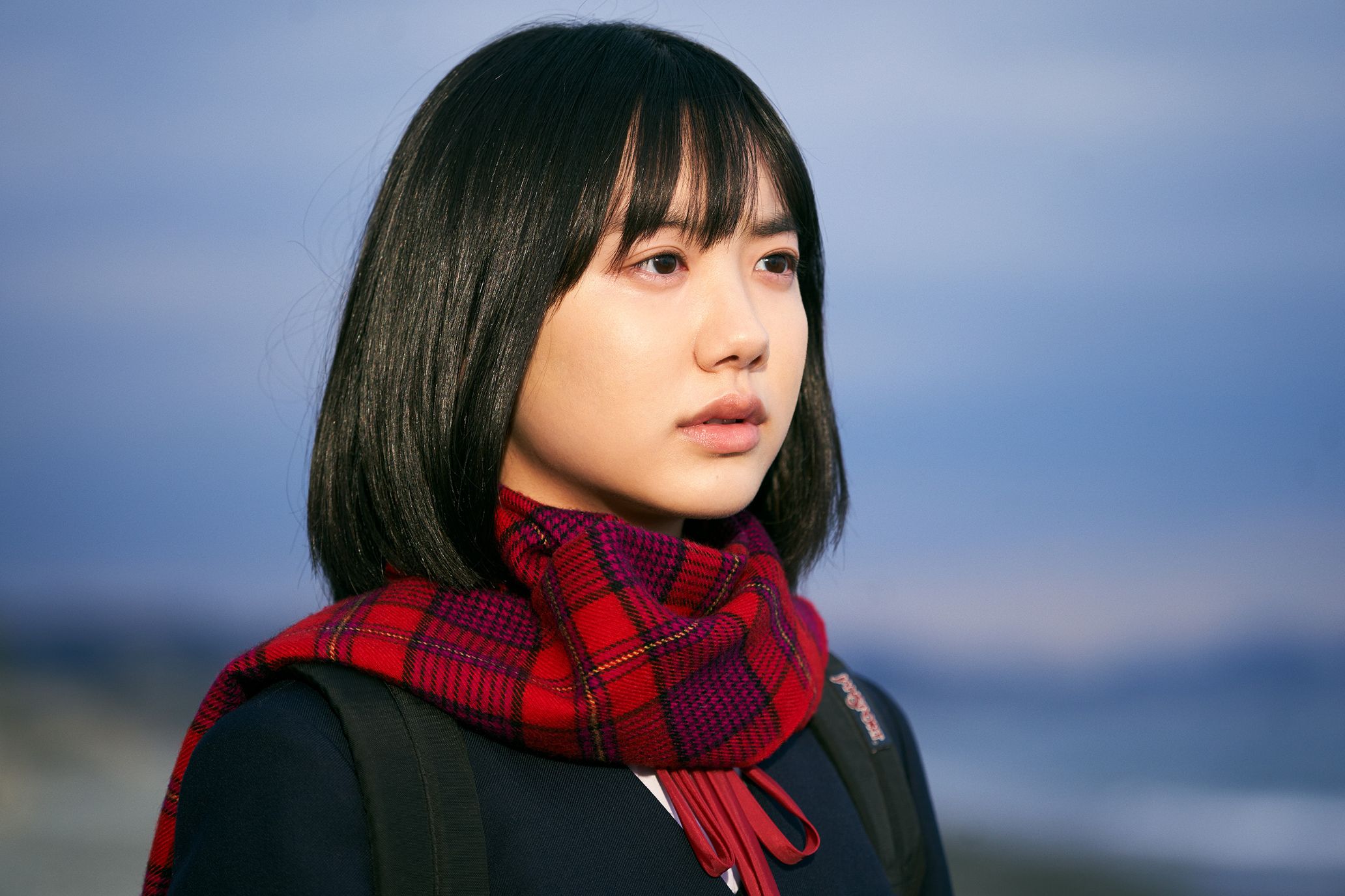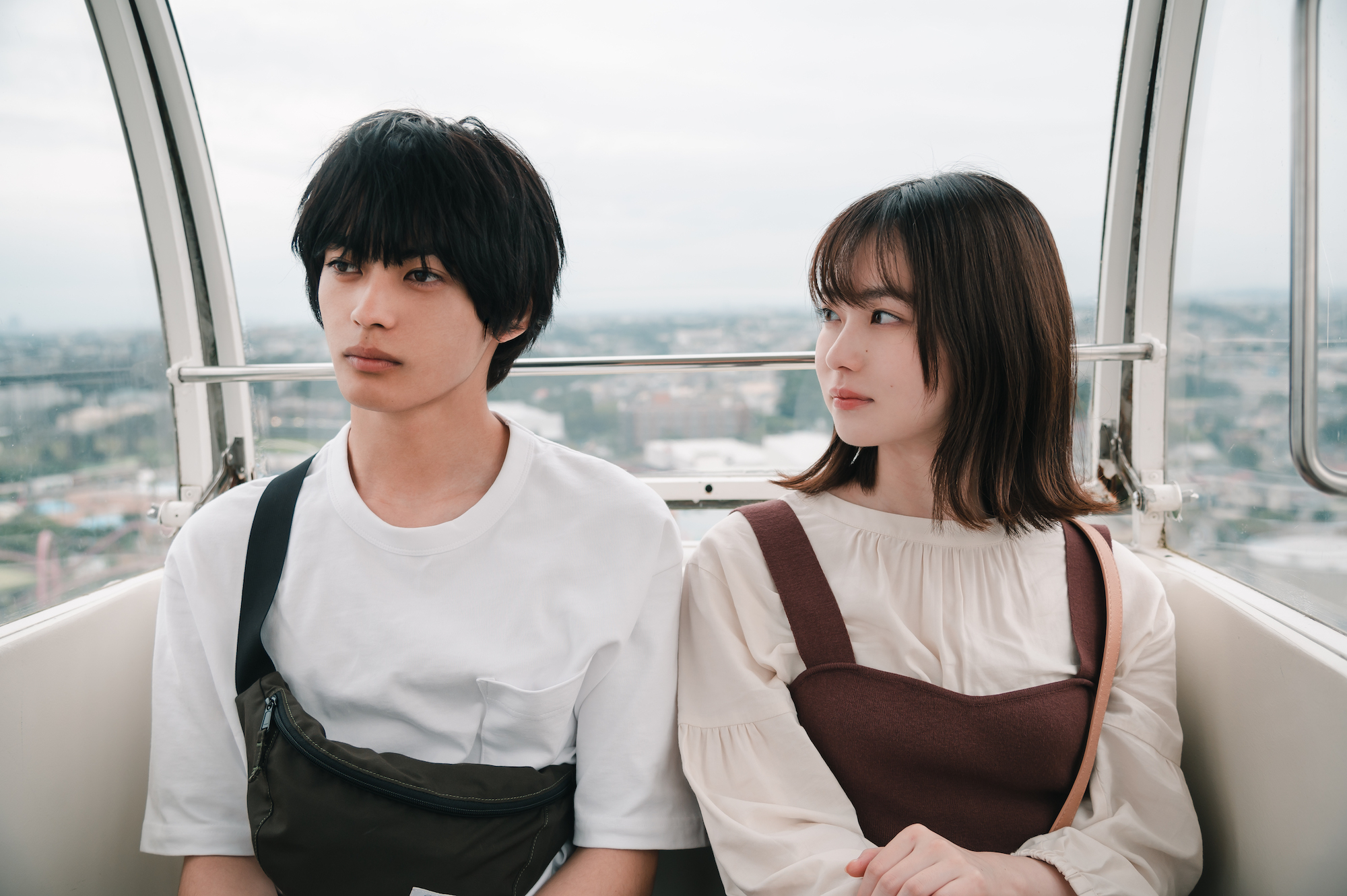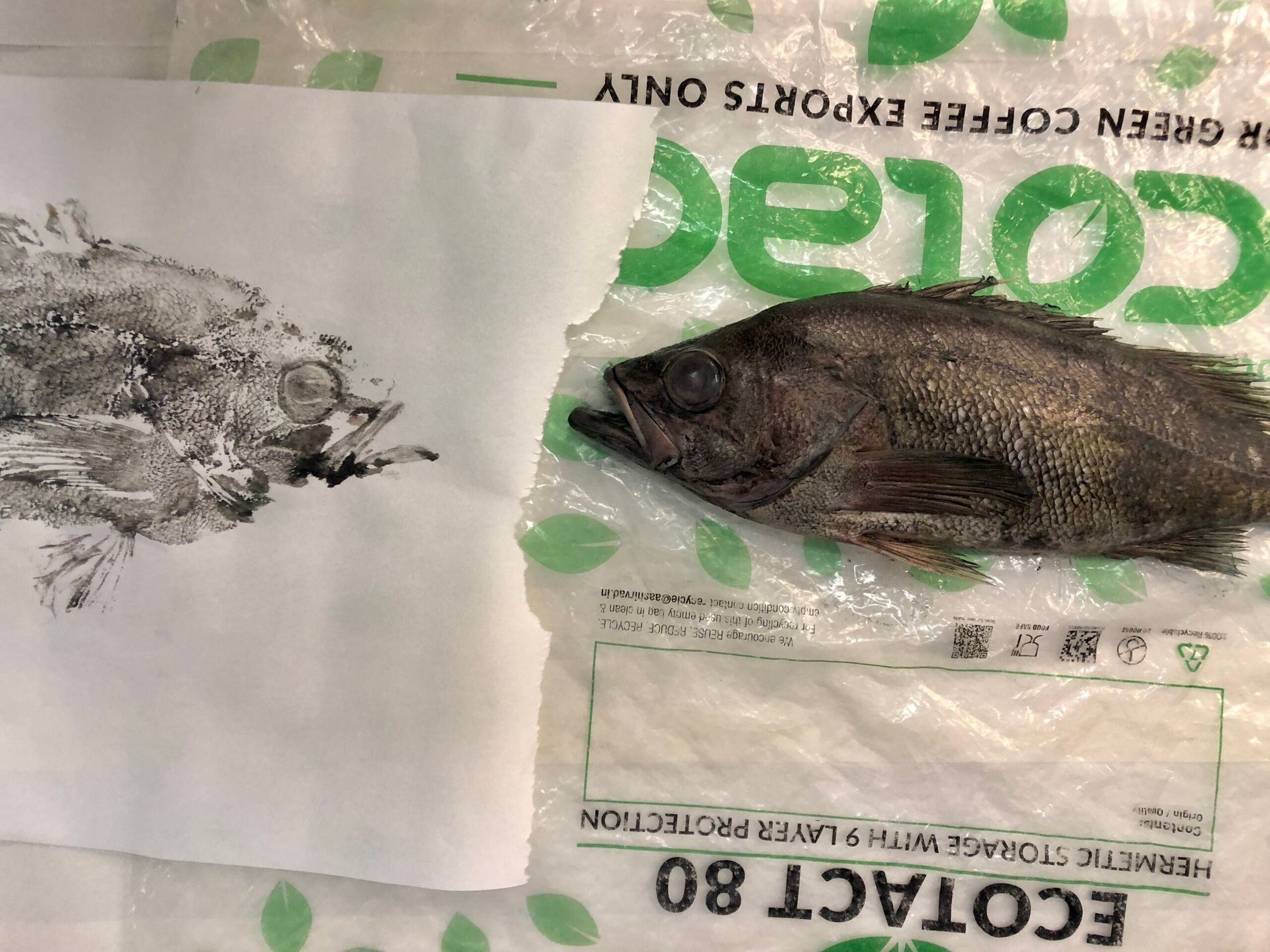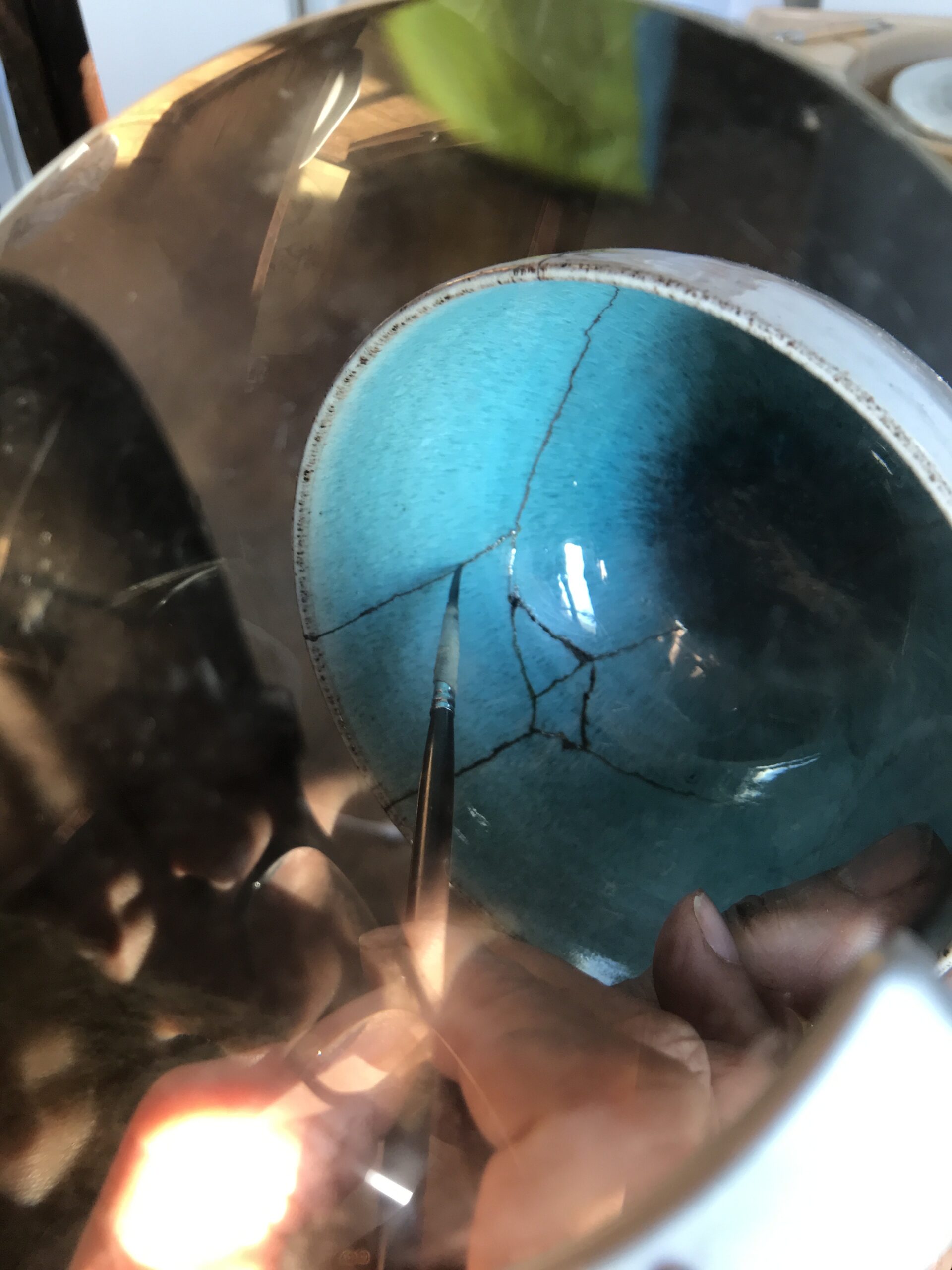Known as the world’s largest Japanese film festival, this year’s festival highlights include sections dedicated to genre and animation films. The festival also has a thematic focus on “Stories of the Youth,” which introduces films on the lives of young people in Japan confronting different types of challenges from bullying, death in the family, and gender identity. The 6th Nippon Honor Award will be awarded to the actor Masatoshi Nagase. This award is given to people who made special contributions to Japanese cinema. There will be German premieres of several films that Nagase stars in and the award ceremony will take place on May 29 at one of the venues. He will attend Q&As after the screenings as well as a special talk session to look back his career as an actor.
Nippon Connection started as a small festival by people, who were passionate about Asian cinema. Over the years it has built a solid reputation and expanded its scope while remaining committed to keeping its core values in practice by organizing the festival mainly by volunteers, who love Japanese cinema. This year, the festival’s trademark color pink will liven up the various venues in the city again. We asked Florian Höhr, one of the curators of the festival, about this year’s festival and the appeal of Japanese films in Germany.
Photography Van Tran、Mark Gobel
The unique diverse characters in Japanese cinema set it apart from foreign productions
–What type of people attend this festival? Do many of the same people continue to attend the festival each year?
Höhr: The audience demographic changed over time because the festival started as almost like a student festival as it used to take place on a university campus in Frankfurt. In those days, many film enthusiasts came to the festival along with students from the university. In 2013, the festival moved to its current location. Then, the audience changed as the current venue is a multi-purpose cultural space, which offers theater and concerts. We ended up attracting the audience who come to the space for other events and they tend to be slightly older. The students, who used to come to the festival are getting older and started having kids. That’s why we have a kid’s section, which shows children’s films and organizes workshops for them. We see more families coming to the festival. I also see people who hit all the local film festivals. Along with the cinephiles, we have the Japanese community as our audience. As you might know, Frankfurt has quite a big Japanese community.
—What are the appeal and the uniqueness of Japanese film to the audience?
Höhr: I get this question a lot and it’s not always easy to answer that. I think the first reason why Japanese cinema is appealing to our audience or the western audience could be that the films are different from what we usually see. The way stories are told is quite different. The films are much less predictable, especially when it comes to non-mainstream films. They don’t have a typical Hollywood narrative, and the characters are more multi-dimensional than in many popular productions from the U.S. The audience learns a lot about Japanese culture when they watch the films. The things they see on the screen including the locations and the topics are different from what they usually see in western cinema. I have the hope that the success of Drive my car, might spark some new interest in Japanese cinema from people who were not so keen on it in the past. Drive My Car was quite successful in Germany, which may lead to people wanting to check out other Japanese films.
—What did you think about Drive my car?
Höhr: I enjoyed it a lot. I was hesitant because of the running time, which is about three hours, and I was a little bit skeptical. When I saw the film at a local theater here, I liked it. I didn’t find it too long and I found the characters interesting. I liked Toko Miura’s acting in the film. I thought she had an interesting character. It was just a joy to see what was going on in the film.
—Are there certain unique genres that are more popular than others with a mainstream audience in the festival?
Höhr: Some films are more popular. I think some of our audience started to like Japanese cinema in the late 90s or early 2000s when there were many crime and genre films by filmmakers such as Takeshi Kitano or Takashi Miike. Those films were violent but quite fun to watch. They still attract a sizeable audience, but I have the feeling that they are not so many films with good quality that are following this direction lately. Another kind of film that is popular with our audience is tear-jerkers. Especially older audience members like to see them. I remember Her Love Boils Bathwater. I don’t know if you know this film. It was popular with our audience a couple of years ago. Anime is popular. I think some people have the cliché in their head that Japanese cinema is always crazy and filled with strange ideas. I remember Fly Me To The Saitama was popular with our audience. The tickets sold out a week or two weeks in advance. I think that was because the manga, on which the film is based, has a lot of fans in Germany. The film had such a crazy concept and people probably already heard about it from the screenings in Japan. I’d say one of the films that had a clever idea was Beyond The Infinite Two Minutes, which became quite a hit at festivals. We also screened it and it was popular.
—In 2018, you created a section dedicated to documentaries, and, the following year, you started to give out the Nippon Docs Award voted by the audience. Last year, many films incorporated the topic of human rights and immigration. The queer film his by Rikiya Imaizumi received the Nippon Cinema Award, and Along The Sea by Akio Fujimoto received the Nippon Visions Jury Award. The Nippon Docs Award went to Ushiku by Thomas Ash.
Höhr: In the beginning, documentaries were part of the Nippon Visions section. Nippon Visions is the section for non-mainstream cinema and films by young filmmakers, and experimental films, which also included short documentaries. After a while, we realized that there were so many good documentaries in Japan that they deserved their section. It was unfair to the fiction films in the Nippon Visions section as many documentaries get better audience ratings and the fiction films didn’t have a chance in the competition. I think one of the reasons Japanese documentaries are so strong is because there are many interesting topics in Japan that you could make a film about, especially human rights issues, and political topics. You don’t need too much to make a documentary. You just need a camera and can do it all by yourself. As we see in a film like Ushiku and before, you don’t need a big budget. You just need talent and a good idea. That’s why we thought it is better to have a stand-alone section for documentaries. We always try to find as many good documentaries as possible. We show around eight or nine documentaries each year and try to make them diverse, including not only serious topics but popular phenomena. I remember a documentary about Shinjuku Tiger. Do you know about a guy who walks around in Shinjuku always wearing a Tiger Mask and goes to the cinema? We showed a documentary about him. As for this year, we are going to show more documentaries about immigration.
1.A Madder Red
2.Last of the wolves
3.Mystery Train
4.Talking the pictures
5.Under the Stars
6.What She Likes
Meeting and connecting with people on a one-to-one level is what we value most at the film festival
–Do you see any changes in terms of the number of woman directors submitted to the festival?
Höhr: I would say there are more films by female directors. We had a program focus two years ago called ” Female Futures? –New Visions Of Women In Japan” as we wanted to shed the spotlight on female directors in Japan. I still think that there could be more female filmmakers compared to other countries. I have the impression that especially in studio films, it’s still not easy for female filmmakers. Most films by female directors are more on the independent side. I think that is slowly changing now. One female director that I follow is Akiko Ohku. We showed several of her films recently at the festival. And for me, she is a good example of a female filmmaker making mainstream films.
–I believe for some Japanese filmmakers, especially the young artists participating in the Nippon connection, it could be their first visit to Europe. It probably means a lot to them. Do you have any memorable moments with any of the Japanese filmmakers?
Höhr: First of all, some of the filmmakers never traveled outside of Japan and their first trip abroad was coming to Nippon Connection. When I hear that, it makes me happy as we feel that we became known as the festival among Japanese filmmakers to have their films shown and see how the audience reacts to their films. I heard many times from the directors that the reaction in the theater is so different compared to Japan and people are laughing at scenes where the Japanese audience wouldn’t laugh or the other way around. I have a fond memory of 2019. This is our last festival before the pandemic. We showed a film called Sea by a young filmmaker named Kensei Takahashi. I don’t know how old he is, but I think he’s quite young and just finished film school. He came with two producers of the film. I could tell that they were having such a great time interacting with other visitors and guests of the festival. In the end, they won the Jury Award. It was their first film and they won the award. They got emotional and the director started crying on stage and that was one of my favorite memories from Nippon Connection to see this overwhelming reaction from him.
–Out of countless film festivals organized all over the world, Nippon Connection became known as one of the biggest Japanese film festivals in the world. I heard that the festival is managed by a nonprofit organization with about 70 people, mostly made up of volunteers. It is a great achievement that is it has been able to develop and grow for more than 20 years since then. What is the secret to success?
Höhr: I think what’s great about the festival is that if you want to do something, and have a good idea, and you join the team, you have a good chance to make your good idea true. If you have a great suggestion on how the program could change or if you have an idea for an event and you want to test it, you have the chance to do it. That’s because the structure of the festival team was open. Even a new person can do many things right from the start. The team changes a lot every year and there are always people coming and going. It means that we always have fresh new ideas and approaches to the work at the festival. As for the team members, it’s great because you can learn many things by working at the festival. For example, most of our technical staff are not experts in event management. If you are assigned to do the technical stuff on the festival day, you start learning about it immediately. If you are in the culture team, you learn how to organize an event, plan everything out, find artists and arrange the whole event. It was like that for me when I joined the team. I didn’t have much experience in managing cultural events, but year by year I learned new things and since the team trusted me to try something new, they gave me the opportunity.
–Like any other film festival, Nippon Connection has faced a new challenge during the pandemic. We are living in a different time now. What is your hope for the future?
Höhr: The success of Drive My Car is one thing that gave me hope because I saw that many people still like to go to the cinema. In the last two years, streaming was getting increasingly popular and important for the film industry. But I still believe that it’s important for people to see a film in the cinema on the big screen and it’s something that can’t be replaced by online streaming. With streaming, you can’t meet people at the festival. I don’t mean just meeting the filmmakers but also meeting some random strangers and getting into a conversation about the film that you saw. What I like most about the festival are the connections you build. Nippon Connection is quite fitting as a name for the festival because so many friendships start developing out of the festival by people who would have never met if they didn’t go to the festival. As for the filmmakers, it’s important to go to the festival and see how the audience reacts to their film. Because if we show a film online, all they see is the number of clicks on the film. They don’t get a reaction from the audience. We are not only a film festival but also a cultural event with food and workshops and lectures, performances and so on. People come for other reasons than only for the films. That’s something you can’t replace with online events.
We are going to offer a few films as video-on-demand after the festival for those who cannot travel to Frankfurt. People, who never had the time to go to the festival, watched many of our films online during the pandemic. The good thing about the pandemic was that we gained a new audience.
Nippon Connection
The Japanese Film Festival Nippon Connection is organized by the 70-member, largely voluntary, team of the non-profit association Nippon Connection e.V. It is under the patronage of Angela Dorn (Hessian Minister for Science and Art), Peter Feldmann (Lord Mayor of Frankfurt am Main) and the Consulate General of Japan in Frankfurt am Main. Since its founding in 2000, Nippon Connection has become the world’s largest platform for Japanese cinema and the most popular film festival in Hesse.
Translation Fumiko M

